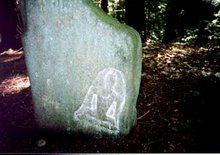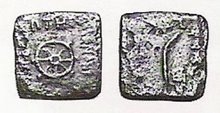"Is the practice of Zen, which explores Enlightenment as attained by the Buddha 'Outside the Dogma,' or does Zen violate the Buddhist concept of silabbata paramasa (wrong practice)?"
Myth 0: My karma just ran over your dogma.
Myth 1: "...which explores the Enlightenment experience as attained by the Buddha..."
Reputable Zen schools do not huxter "Enlightenment." Satori is best described as "arriving at an understanding."
Myth 2: silabbata paramasa (wrong practice)
First reject all dualism!
Those who conceive of a Ch'an identity independent of Buddhist teaching do not understand that the scriptures (ching) are the words of the Buddha, and meditation (ch'an) is the thought of the Buddha; there is no discrepancy whatsoever between what the Buddha conceives in his mind and what he utters with his mouth.
*Tsan-ning (919-1001)*
Zen is a legitimate branch of Buddhism. Budh - 'awake' is the ultimate goal for adherents to all the many branches of Buddhism.
Q: Why do so many critics claim Zen Buddhism is non-religious AND non-Buddhist.?
A: Zen-adherents essentially seek satori - understanding - without bells, chants, beads, and baggage. The very realization of this path is an awareness that there are only 'ordinary monks.' Self-proclaimed neoGods find this a tough truth to crack. Want a 'guru?' See a Hindu.
There is also a direct lineage from the Buddha to the Zen monks of China, Japan, and California (among many other places).
Zen (Japan) or Ch'an (China) Buddhism is a small branch within the great living tree of Buddhism that happens to stress the practice of meditation as the path to Satori or understanding. Although the Zen branch has roots in India, it was in China and then Japan that this branch gained acceptance, was nourished, and flowered.
The Lankavatara Sutra: Bodhidharma, the first Ch'an (Zen) Patriarch in China was a master of this text. He came from India in 470 CE. He emphasized the practice of Zazen. Legend has it that he spent 9 years in meditation before his awakening.
The success of Ch'an in China was mixed. It suffered from the general persecution of Buddhism in 845, but recovered quickly because - in contrast to the other branches - Ch'an monks engaged in physical labor, fished, farmed, grew gardens, and produced crafts.
During the Sung Dynasty (960-1279), Ch'an flowered and was a leading influence in the development of the Chinese art culture. It was also during this time that Zen was established in Japan (Nihon-koko). Two quite historical personages - Japanese Zen monks - Eisai (1141-1215) and Dogen (1200-53), studied in China. Both Eisai and Dogen taught ZEN to subsequent generations of ordinary monks in Japan. While Eisai emphasized Koans, Dogen stressed seated meditation without conscious striving for a goal - Zazen.
Q: Why was Zen popular in the West.
A: Some thought Koans were comedic, cute, or witty. (Some are)
A: The practice of meditation in Zen was initially thought to be easy.
Zen meditation may (or may not) lead to the experience of Satori - understanding.
Q: How does one become a Zen Monk?
A: Although the training of Zen monks typically includes daily physical chores, exposure to koans, and hours of sitting in meditation, meditation requires only that you sit quietly. For many, Zazan (sitting meditation) is the hardest part.
Budh (an awakening) is generally thought to be both extremely rare and very sudden. The meditating adherent is 'suddenly awake.' (Budh). Although a satori - a step toward Budh - may be initiated in novices or adherents by a monk, most instances of having a Satori chime from hearing a sound, feeling a breeze, or seeing an object or living being at just the correct moment. Thus, providing the mind is aware and properly prepared, timing is everything. It is a considerably different and greater gift of your training to be awakened in this way!
By the way, Satori is not Budh lite! In theory, one may have a multitude of satori experiences but only one Budh - awakening - per life cycle. See what Ikkyu thought of his 'second awakening' HERE. Remember, the Buddha said words to the effect that if he had the ashes of his many passages through the cycles of birth-life-death those ashes would be a mountain high.
Zen masters may allow that practice called gasho - appreciation of - the trinity of refuges. That trinity is 1) the life of Buddha (that Gotama lived), 2) the teaching or sutras of Buddha (that Buddha's teachings remain), and 3) the sanga or community of Buddhits (that communities are available in which students can freely learn). But many masters also demand answers to koans. (What is the sound of one clapboard, handing?). Conversely, the master may guide the novice - by silence, compassion, or a thwack on the head or shoulder with a bamboo rod- but with the consistent goal of shattering conventional mythology or folk truth so the Absolute Truth - which almost every novice has within - may emerge. Thus Zen Masters generally avoid answering questions.
Buddha himself might have considered bowing to a statue idolatry - research it for yourself before you swallow the blue pill. When in Rome, consider doing as Romans do - but that does not necessarily mean buying into the party line.
Kendo is the way (to Satori) of the Sword. (One cannot appreciate life until one has faced death.)
Chado is the way (to Satori) of serving tea. (One cannot appreciate drinking tea until one has served tea.)
Kado is the way (to Satori) of flower arrangement. (One cannot appreciate a flower arrangement until one has arranged flowers.)
Kodo is the way (to Satori) of fragrance. Along with tea and flower, it is a classical art that a woman of refinement is expected to learn. And so forth... do means way.
Zen has no corner on 'the way to Satori' although meditation is ultimately the foundation of all Satori and awakening (Budhi) - even Gautama Shakyamuni's!
Q: How any ZEN masters does it take to change a light bulb?
A: Thwack! A Zen master is [one with] the light bulb.
Q: Why can't Zen masters vacuum corners?
A: Because Zen masters have no ATTACHMENTS!
Q: How many Zen novices does it take to change a light bulb?
A: Three. One to call the electrician, a second to agree that calling the electrician is actually required, and a third to share the experience.







